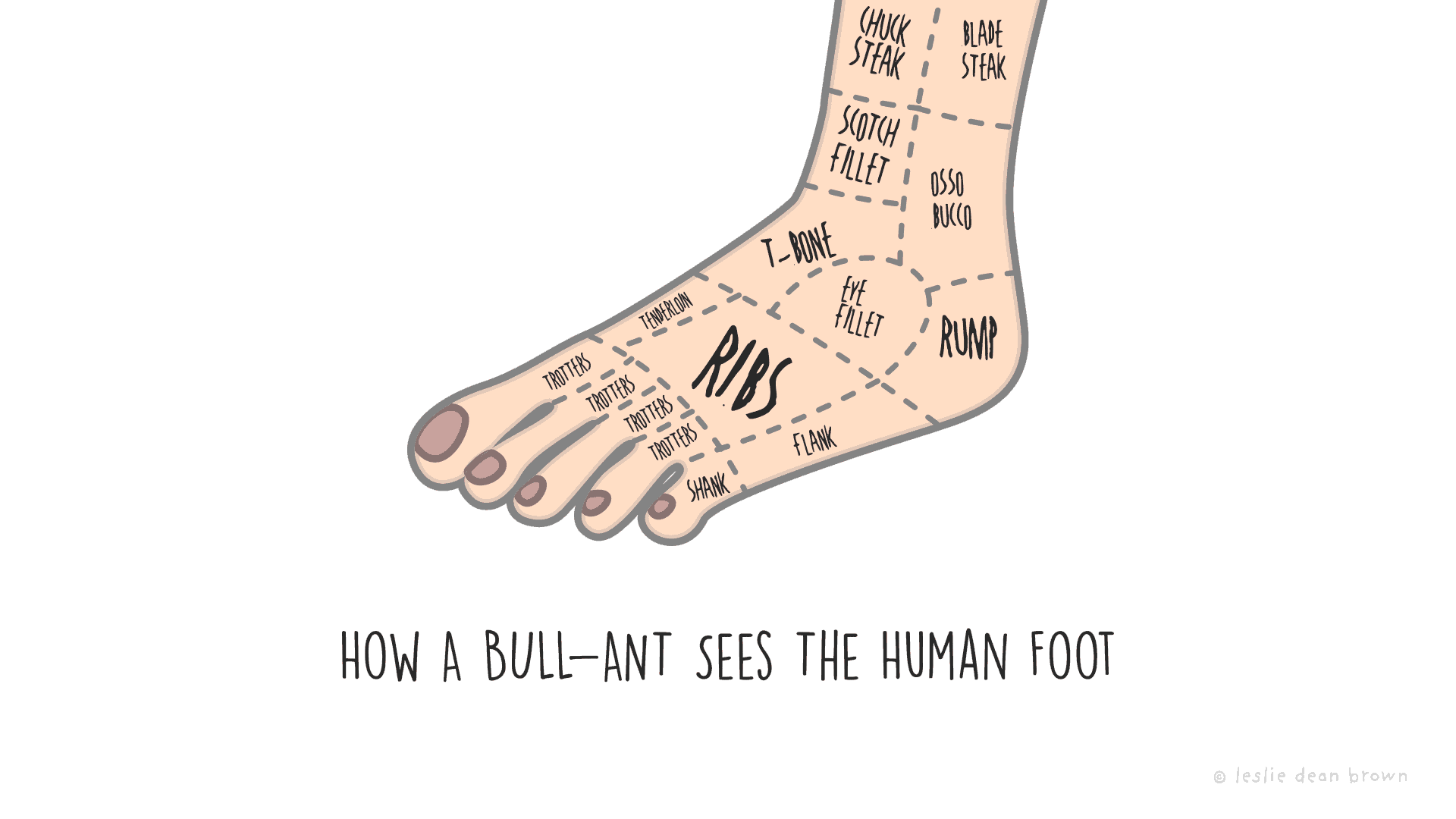“We’re very very disconnected from what we consume. So because of the widening degrees of separation between the consumer and the consumed we no longer have any real appreciation for the embodied energy, the embodied destruction, the embodied suffering that goes in to every stage of the supply chain in the things we buy.” — Mark Boyle
I’m sure that most consumers don’t care less what chemical elements are used in the manufacture of all the products that they buy. I’m talking about all the elements and compounds required to make all of these products function like they do. But consumers should care. We should care about what products are made of, what they are made from.
But with things like consumer electronic devices, customers simply don’t think about their ‘ingredients’ much. I think the problem with this world today is that consumers don’t question the true origin of synthetic materials, let alone how they are extracted and processed.
I think people really need to wake up and ask where their materials are coming from, learn about all the many processing steps each material requires (extraction, refinement, manufacturing, production) and also ask what happens to all these materials at the end of the product’s life. In many cases, even with recycling of plastic/paper/metal, the majority of materials on the periodic table aren’t being recycled and are ending up in landfill (and/or the ocean).
I think each product sold should have an ‘ingredients’ label showing exactly what materials are in it. That way, people could [eventually] reference which materials have the highest ecological impact…
The obvious exception is of course food. Wherever food is concerned, then consumers quite rightly want to know what they are consuming. We want to know all the food ingredients. We want to know what we put into our bodies.
I think part of the reason for that is that most people simply don’t understand and/or don’t care and/or simply haven’t thought about it. We have no reason to. We don’t have the time. I know that I was never educated to question such things before I bought something.
Like me, you might ask your vendors to use sustainable packaging. Even so, recycling still requires energy. Right? What about the energy that went into making the actual product? It’s transportation costs? The environmental cost of mining and extraction?
Part of the problem is that there are simply no compulsory materials labelling requirements on anything inedible sold today (unless it contains something toxic like lead or something radioactive like plutonium). So if anything, the fact that there is no label encourages us not to even think about it.
As far as materials go, we only see a recyling symbol and we only ever look for that symbol when we are ready to throw something out; we never look for that symbol at the time of purchase (which is when we should really be looking at it).
Often the recycling symbol will tell us what the material is made from. PET is polyethylene terephthalate. LDPE is low density polyethylene, HDPE is high density polyethylene, PP is polypropylene, PS is polystryene, ABS is acrylonitrile butadiene styrene, PA is polamide (nylon) and PVC is polyvinyl chloride. It is getting better, slowly, because now it includes organic materials like wood, cork, cotton and jute. But so what? But the only reason plastics are labelled like this is to make recycling easier for recyclers.
If anything, I could argue that it’s more important to label products to see where things came from initially than to label them so we know what to do with them afterwards (for recycling).
Why should we care? Well, for the same reason that no one wants to store nuclear waste in their backyard. Because it has the potential to affect us, that’s why we should care. To ensure that we aren’t destroying true wilderness areas to get at all this stuff in the first place, that’s why. Well okay, I could say we are starting to see this with the introduction of PEFC and FSC timber, which is a fantastic initiative [note]It doesn’t stop Ikea from only using 50% FSC timber though, does it? Even so, consumers can make informed choices. [/note]. But what about sustainably sourced metals and polymeric materials?
Just as we care what we put into our own bodies, we should care just as much what we take from the environment and put back into it. We should care because the environment supports us and gives us life. We should care just as much if not more about what we put into the environment than our own bodies because –like like nuclear waste– what we feed ourselves with can only really kill ourselves, but what we take from the environment and what we put back into it can continue to cause harm to humanity for many subsequent generations. Do we care though? No I don’t think we do care. Not at all. Not yet. We only seem to care about the here and now.
This recycling & labelling system was never designed to indicate how environmentally friendly certain materials are to begin with. I’m a materials scientist and I don’t even really know[note]I have a 1st class honors degree in Materials science. I followed that up with a PhD. And unlike a lot of other materials scientists, I didn’t sell out and get a career in industry, because deep down I have always been an environmentalist first and foremost. So if there’s one thing I can offer humanity, it’s a little bit of knowledge with respect to materials, how they are extracted and how they affect the environment.[/note]! All I know is that PVC and polystyrene are ‘bad’ because I think Greenpeace told me so once. I personally like polypropylene – things that are made of polypropylene seem to last quite well. Polyethylene has a bad name because it is used to make plastic bags (but it isn’t so far as I know a ‘bad’ plastic). Other than that, I can’t tell you.
The fact is, we are all buying things completely blinded as to how they were made and the true impact that our choices ultimately have on the environment. So we are mostly ignorant about all the materials that are used in many of the things that what we buy. We just assume, wrongly, that everything is safe. Is it?
Has anyone studied the extraction processes of the above plastics and calculated how much CO2 they produce from the very start to the very finish? To simply compare the “environmental friendliness” one material to another?
What about how much electricity is used to manufacture these materials from start to finish? What about how toxic their contituent chemicals are from start to finish? What about how toxic their chemical byproducts are from start to finish? And what about doing the same thing for all of the starting chemicals & compounds used to make these materials, not just the final ones themselves? Because for each and every additional chemical reaction step, more and more resources and energy are ‘wasted’.
My point is, if I can’t even rate which materials are better or worse for the environment than others on a scale of zero to one hundred –and I’m supposed to be the expert in materials– how are consumers supposed to know? It’s really kind of scary that manufacturers have gotten away with it for so long too. I don’t see anyone focused on rating and comparing all of those industrial chemical processes because it is actually fairly complicated to work out (other than industrial chemists trying to save their company a lot of money by being more ‘efficient’). Even if you buy wooden furniture it still has to come from somewhere. That’s why I have deduced that minimalism is definitely the way to go if you truly care about the environment.
As an aside, there might also be an energy star rating to tell us how efficient the device is. A washing machine might be 4/5 stars. 5 stars meaning it uses very little electricity. But if the washing machine is made from steel that was mined by clearing rainforests in the Amazon basin, how ‘eco’ is it really? If the company that made the steel doesn’t care at all about the environment, dumping their waste in local rivers for example, would you be as likely to buy it?
You probably already know that recycling uses fare less energy than new mining operations and extraction processes. The good news is that the most commonly used metals (for bulky items) can be recycled fairly easily.
In my home town, the only metals or alloys that are currently recycled on any great scale by scrap metal merchants are the following ones: aluminium, steel, copper, lead, brass and bronze. Silver, gold and platinum are all considered “precious metals” so obviously it pays not to through them away.
Considering how many elements, alloys and compounds we use, I feel compelled to write that so far humans are not exactly very efficient recyclers of the materials we produce. Quite the contrary. We’re actually the most wasteful species of animal that the planet Earth has ever seen.
The way we make all of our electronic equipment, the circuits, is with conductors made of transition metals like copper, seminconductors made of post-transition metals (or metalloids) such as silicon, germanium, gallium, arsenic and insulators (various polymers and ceramics). But essentially all the pure elements are mined directly from the ground— from the Earth’s crust. We don’t just create them from thin air. If most of these products use materials that are mined from the Earth, and we know that the Earth is a finite size, we should already know that blatant consumerism without some form of advanced recycling is not exactly a sustainable way of life. Is it?
So the question arises: if we want to keep making computers, are we going to have to keep opening new mines all the time? What about all of the multitude of chemical compounds that are used in their extraction and refinement? [note]Maybe one day it would be feasible to build nanobots that could dismantle electronic components and reuse them. That way they they wouldn’t have to be mined and reprocessed[/note]
How long do we think we can continue doing that for? I’d like to remind everyone that we live in a finite world. Nothing can change that. The last time I told my psychologist all of this, she said: “who’s to say that we’ll be around in five hundred or one thousand years time?”. Well I for one hope humanity and all the other species are still around in five hundred or one thousand years time. What’s wrong with that? Otherwise, what’s the point? Why don’t we just all commit mass suicide right now? Because we want to survive, that’s why. And part of survival is looking at the bigger picture, at the long term. What if the ancient Egyptians had said the same thing? Well then we’d have been fuckéd several thousand years ago already, wouldn’t we? Because time passes and before you know it, the year 2350 is here and we are fuckéd.
Ultimately, I think that if products are not completely recyclable, then I don’t think unconstrained consumerism itself can be sustainable in the long term with continued population growth. It just can’t.
a small minority of economists is at present beginning to question how much further ‘growth’ will be possible, since infinite growth in a finite environment is an obvious impossibility. — EF Schumacher
Anyway. So if I want to recycle an old computer say, what happens to it? What happens to all of the other dozens of elements that go into the manufacture of integrated circuit boards and other electrical components? What happens to the elements that cannot yet be recovered? Well, what we end up getting is “electronic waste”. Let me see… how can I put this? If I had to chose between eating toxic e-waste in powdered form (like from the “will it blend” videos) and eating my own poo, I would rather eat the poo!
So now to the other bad news. The trouble is that consumer electronic devices contain a myriad of elements and compounds that cannot easily be extracted or physically recovered. We’re making components so physically small that “it’s easier” to throw them in the bin and consequently to mine, extract and manufacture brand new components instead. The trouble is that we are simply not smart enough to make a biodegradeable or compostable integrated circuit board.
It’s a bit extreme, but the way I have come to see it is this: every time you buy some new piece of technology –anything– you’re killing some part of the natural world, somewhere else. Each time you buy a new appliance and plug it in, something –somewhere else– dies. But I’m not just referring to kitchen utensils, I’m talking about each and every man-made product that’s available. Why? simply because the resources that go into making these things have to be taken from our environment, in whatever manner.
Every time you buy some new piece of technology –anything– you’re killing some part of the natural world, somewhere else.
We have a recycling “rating system” to help us identify and sort products at the end of their lifetime (the recycling symbols). We have an energy “rating system” to help us with products during their lifetime (the energy star rating). But do do we have an equivalent “ecological impact environmental rating system” to help us rate the materials used in products before their lifetime even began?
I think we should know all about the materials that are used in our devices. So first off, I think there should be environmental ‘ratings’ for all of these materials so that industrial designers can have more of a guide on what materials to use. And then there should be a label to inform consumers directly about what they are actually purchasing and its effect on the environment. Perhaps one day when we buy a new computer say, it will come with a whole bunch of information about the elements that went into its manufacture; where and how the raw materials were mined, extracted and processed. That way, we’d be able to make more ethical choices about the things that we buy.
These are the sort of questions that I think more people should be asking themselves before they buy quite so many things. I think if we did know exactly where things came from and their environmental costs, and if that information was presented to us in a clear and concise format at the time of purchase, I think it would make a difference. It would encourage manufacturers to source their raw materials from more sustainble sources, because not doing so would place them at a clear disadvantage in ecological terms. Right now manufacturers get things made in China for example – because it is simply cheaper. But at what environmental cost? What if the mining and extraction of Australian ore was better for the planet? Well, it probably is a little bit better, but consumers just don’t know about it. What if we knew more? Wouldn’t that change how things are produced and consumed?
At present I laugh at attempts by our government to be more ‘sustainable’. I think in that respect, we can actually learn from indigenous Australian Aborigines. We should stop trying to teach them how to be more like us. We should start learning how to be more like them. Because I already know that if we want to survive for the next 10-20,000 years on this planet, I think we should be looking very closely at their culture.
Likewise, I think we can and should actually learn something from ‘poorer’ countries— about how we ourselves can be more sustainable. Because even with all of our of our advanced technology, all second and third world countries are still using less energy than us in practically every aspect of their lives… they do things like only buying the things that they need. They buy in bulk. They either share cars or they don’t have cars.
Perhaps the one right answer to our long term survival is minimalism? It is certainly obtainable. All we need to do is consume less. Perhaps we should be leaving more minerals in the ground? I certainly think so. I’m not saying that we should all go completely without technology, but perhaps one computer really is more than enough?



